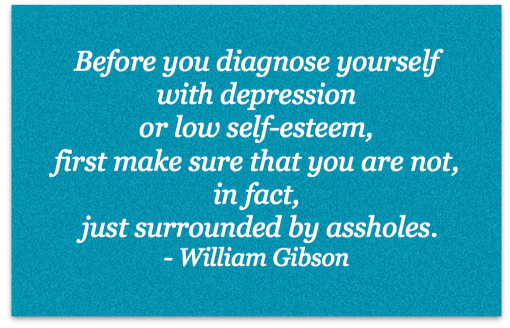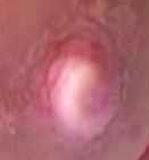|
Ladies (& partners and support people), you need to know that there are resources out there to help you, when you need it, where you need it and that will consider YOUR goals. I can come to your home, I can come to see you at the hospital, you can come to my office. If you feel like you are not getting the support you need, when you need it, don't throw in the towel on breastfeeding. There are always options. Breastfeeding can take some time to get established. It is a learned behaviour by both mother and baby, and each baby a woman has is a new learning experience. With that said, time is also precious when trying to get breastfeeding established. Some things are normal learning curve experiences and some things are not normal and should be addressed as soon as possible. Mother's almost always know when something is not correct. I spoke with a mother earlier this week who knew something wasn't right. She asked for a referral to a lactation consultant and was denied. She continued to ask as the days went on and was told repeatedly that what she was experiencing was normal and wasn't yet at the point of needing a lactation consultant. Her frustration was to the point that she was ready to throw in the towel on breastfeeding. She spoke to a friend who informed her that there are private IBCLC's who she could see and who would be able to see her sooner than later and that before she quit breastfeeding she should call me. This mother took the advice of the friend and gave me a call. I was able to listen to her breastfeeding story to date, do an assessment on her and baby, figure out what her goals for breastfeeding were and prioritize the concerns she had about breastfeeding. Sometimes it is about addressing one big issue, like the amount of pain a mother is having, and then moving forward with other plans and goals. Breaking it down into manageable bits and pieces can make the big picture seem far less daunting. Let's not worry about breastfeeding until baby is one year, if we are not even sure we are going to make one week with the amount of pain we have. Maybe we should look at how to get rid of the pain, and see how week two goes…sounds far less scary than pain for a year.
 Disclaimer: I am not a mental health care professional or provider. If you think you are suffering from any sort of mental illness I recommend seeking medical attention as needed. I will also add in that I do take mental health concerns seriously and this blog post in not intended to down play medical concerns. Before you diagnose yourself with depression or low self-esteem, first make sure that you are not, in fact, just surrounded by assholes. - William Gibson When I first came across this quote, I immediately identified to it as an adult, as an individual and as I related to other adults. More and more I have been thinking about this in the context of my work, my work with new families, young babies and children & different relationships forming in homes. The rate of postpartum mood disorders is on the rise. Baby blues, anxiety, depression and psychosis are a very real reality for many new mothers and fathers. We mostly see it in the context of mothers but more and more research shows our fathers are impacted by mood disorders as well. Let’s, however, just step back for a minute and think about the above quote. “Before you diagnose yourself with depression or low self-esteem, first make sure that you are not, in fact, just surrounded by assholes.” I don’t want to be rude but let’s face it, babies are assholes, toddlers are assholes and kids can remain like that as they grow up. They certainly don't mean to be but they are incompetent & demanding, they can be obnoxious and rude, they interrupt your every meal and all your sleep. You can’t even think about peeing without baby waking up and crying, let along move an inch to try to get up and pee. They need to be fed constantly, hanging off your breast, YOUR breast no longer belongs to you. When they are not feeding, they need you to hold them or they will turn the reddest of red and blow horrible smoke from their ears. They pee and poop ALL.THE.TIME. Rudely, they sometimes don't even wait for the new diaper to get on before they shit all over you or shower you in pee. You imagine stuffing that thing back inside you, because as awful as it was to have that watermelon come out the lemon, they are way easier to take care on the inside, right? Well, too bad, there is no turning back. There is only moving forward with this asshole in your life. By now you know I am not serious in calling babies assholes, but you can see my point. Life is HARD with a new little person to care for. The real assholes of the world are hard enough to put up with, but now you have to put up with the smallest of them all, ALL the time, because YOU created it after all, YOU wanted this. Now you have to do it when you have zero sleep, zero nutrition and probably zero clue how to actually take care of this baby - I can guarantee you it did not come with a manual. Add in some hormones and everyone’s opinion of what you should be doing and it is easy to see why one would end up with signs and symptoms of a mood disorder or postpartum depression. So, how about we get serious about what we can do about this baby and get through what will be one of the most challenging times of your life. Self-care is big. You don't want to lose yourself in this. Having a baby WILL change you, but doesn’t need to consume you. What do YOU need? What does your partner need? Make a plan to have that happen. 15 minutes in the shower, making two sandwiches instead of one when your partner leaves for work, tea out with friends. Asking friends to bring you food when they come visit the baby. By the way, when they come visit, the asshole will switch personalities and put his nice guy face on. Have someone come help with light house work and laundry once a week. It’s the small things that make a massive impact. Communication is huge. Tell each other how you are feeling about the changes in life and the new demands. If you are reading this before having your baby, start that conversation now. Brainstorm the different ways to achieve self-care that will work after baby. Be open and flexible in changing those plans, if needed. Just talk to each other and others about what is happening in your new world. Just keep the conversations going. And find others who will listen to you both. Just someone who will let you get it out. I promise, they won't mind. Support. SUPPORT. SUPPORT. This is a must. You need to build a team of support people. Before baby is ideal but may not have happened and you may now just be building a support team. Who are we talking about? Family, friends, community resources - your health care providers, doula’s, peer support groups. Everyone’s team is going to look different depending on the needs they have. What is important to know is that support is going to make one of the largest impacts in how you feel about everything and how stable your mood will be, how you will interpret your experiences and what the outcome of the situation is. It is important to identify your needs and equip yourself with the tools to get there. It is vital to know what your support options are because without options you have no choices. So, start now by identifying your needs and making a list of supports. If you get lost and have a need but don't know how to get the support you need to have that need met, please ask! I am here to help in this time of transition in your life.  In 1988, over 25 years ago, the Supreme Court of Canada ruled that discrimination against pregnant women is a form of discrimination on the basis of sex. The biological fact is simple; only women have the capacity to become pregnant and therefore discrimination on the basis of pregnancy is a form of sexual discrimination. In Saskatchewan, as in other provinces in Canada, women cannot be discriminated against on the basis of pregnancy. This is upheld in both the prenatal and post-natal period. Women who are expecting or have recently given birth are entitled to reasonable accommodations that may be necessary because of their pregnancy or having a baby. In Saskatchewan, this included women who are breastfeeding as stated by the Saskatchewan Human Rights Commission. One is left to ask them, why is it that after 25 years since this Court ruling, are breastfeeding women still being discriminated against? Experiences of Saskatchewan women being discriminated against in the last two years include mothers being asked to stop breastfeeding on public transit, a lifeguard at a public pool asking a nursing mother if she can go to the change room to nurse, in another pool in another city a mother was asked to get another towel to cover, another mom is asked to stop breastfeeding her infant while she is in a family restaurant and a mother was kicked out of a mall for nursing in the food court. The list has more, that was just a few. I am left to assume that the people who complained about these women and the people who asked them to stop nursing in public did not think of their actions as being discriminatory and least of all against women on the basis of their sex, but it is. We need more public awareness because these occurrences create barriers for all mothers and their babies. Furthermore, staff and establishments could be left paying a legal consequence because patrons have asked staff to intervene. Who gets to tell the patrons that they are indeed wrong and that the staff cannot and will not approach the mother and child? What if the staff does not know and they approach the mother and child? Legal consequences fall on whom then? The public needs to be aware of this law and the rights of the mother baby dyads as do businesses and their staff. It would seem as if society is behind the law on this act, this biological act and need of all infants. It is time that society steps forward 25 years on this issue and catches up to the law. The evolution period of this law has had more than enough time. The laws can help shape societal norms and I, for one, think that it is time this law comes into play to help move the norm of infants and children breastfeeding in our society. It is no longer socially acceptable to drink and drive and the laws definitely helped to raise people's awareness of the serious consequences of that behaviour. The laws that protect people against discrimination on the basis of sex have been around for many decades in Canada. These laws are included in the Canadian Charter of Rights and Freedoms, which is part of the Constitution - the highest law in our country. The fact is that women are still being asked to cover-up, move or leave venues, almost 25 years after the Supreme Court of Canada’s decision that discrimination around pregnancy and childbirth and breastfeeding is discrimination on the basis of sex. Societal norms in regards to breastfeeding have not changed to keep up with the law and it is time that it does.  white color that can often been seen after feedings white color that can often been seen after feedings You are a new breastfeeding mother. It has been about ten days and your cracked bleeding nipples aren't healing & you have started to have a burning sensation with deep throbbing pain in your breast. It sometimes lasts for a few minutes, but sometimes hours. The beginning of feeds are terrible and even between feeds you are getting electrical shock like feelings in the breast. If this is you, you are like many other mothers and like many other mothers you may have been told you have thrush. You are given a prescription for nystatin for you and baby. You treat for two weeks and symptoms get mildly better, but it isn't going away. Baby has no symptoms but your pain just won't knock it off. You get Nystatin for a couple more weeks, cut out all sugars, start washing your nipples with grape seed extract and the pain in still persistent. Maybe you have had APNO cream & some Diflucan in there, as well. Still no success. How about I suggest to you that if you have thrown every thrush treatment at your nipples and you're not seeing results, that it isn't really thrush you are trying to treat? Thrush is very commonly diagnosed, rather misdiagnosed. I do not think that it is as common as we are being led to believe it is. I know you are asking me, "if it isn't thrush than what is it?" I would say in more likelihood than not, it is vasospasms. Vado-Whats? What are those? The simple answer is that the blood vessels in the are contracting and becoming smaller in diameter - called vasospasms. This can happen for a variety of reason and for some people it can be very painful and occur in various parts of the body, including the nipple in breastfeeding mothers. There are risk factors for vasospasms including but not limited to :
What are some more symptoms and how would you suspect you have vasospasms?
It is important to seek professional help as soon as possible if this problem is persistent. They can help assess the cause and come up with some remedies for you. They can also explain the use of vitamins, minerals and omega fatty acids (important for healing). There are also prescription medications available, if warranted, and your IBCLC and physician can help accommodate that. You do not need to suffer through the pain or end breastfeeding for this to resolve. If you would like to keep breastfeeding, without pain, book an appointment and we can get you back on track. |
Kim Smith
|
 RSS Feed
RSS Feed
